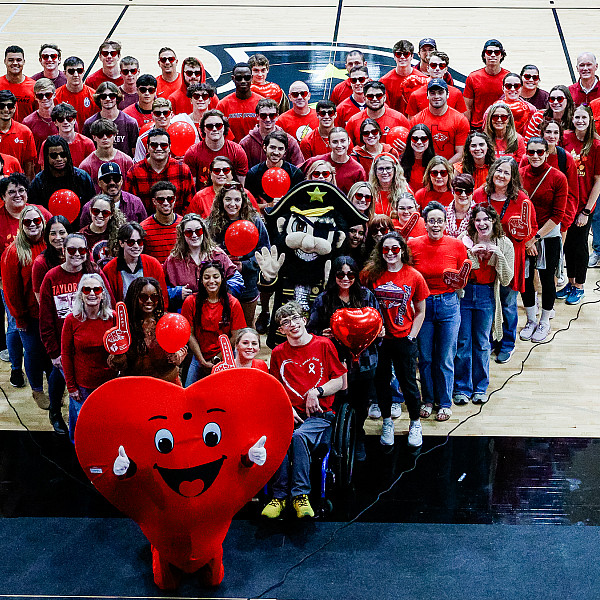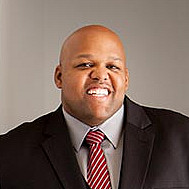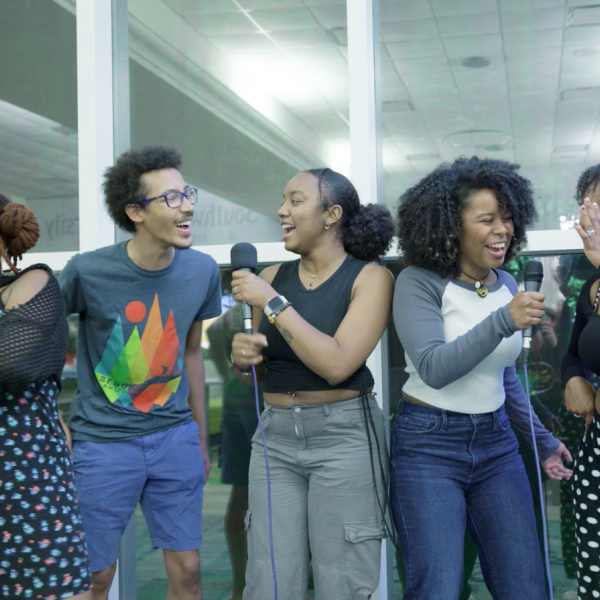News
Eric Batch ’97 Reflects on Two Decades of Saving Lives with the American Heart Association
After celebrating 20 years with the American Heart Association and moving into a new national role, political science major Eric Batch ’97 looks back at his time at Southwestern and how it inspired him to change the world.
February 27, 2025
February 27, 2025
Open gallery
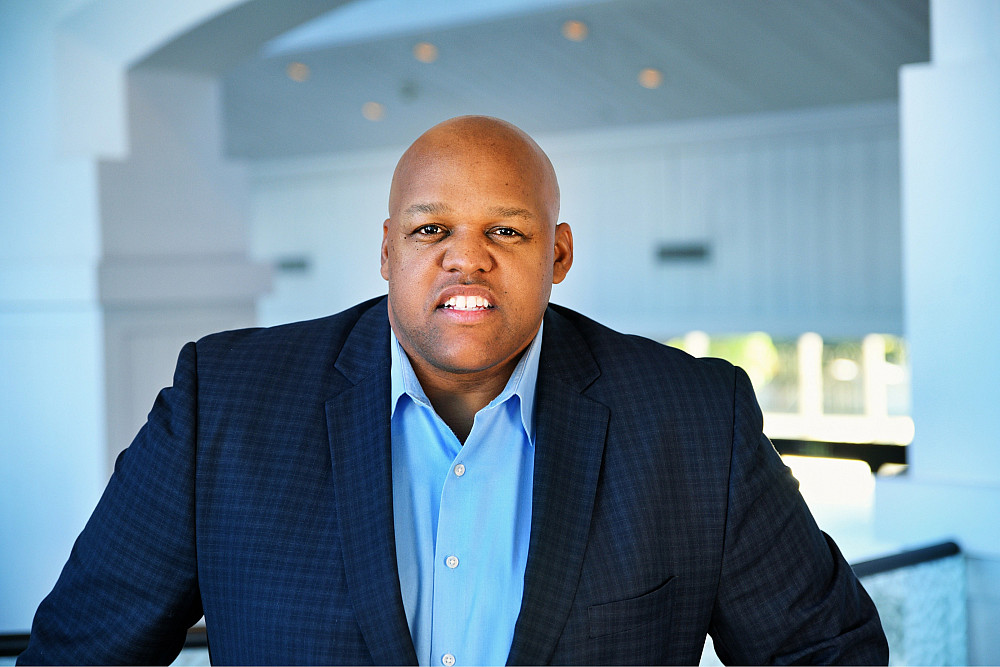
Inside the Spring 2005 edition of Southwestern Magazine, readers will find a feature article about Eric Batch ’97. The piece highlights a recent alumnus who had just embarked upon a new role, as Vice President of Advocacy for the Western States at the American Heart Association. In the article, Batch shared, “I’m excited about the opportunity to do work that will bring awareness to some of the top health threats for all Americans, and African Americans in particular.”
As Batch enters his 21st year at the American Heart Association, it’s nearly impossible to count the number of lives that he has touched, influenced, and even saved.
“Never in my wildest dreams would I have thought that I could make the kind of impact that I have,” Batch said. “But, I am fully aware that I am just one of many people that have contributed to different successes. I have been blessed to manage amazing teams and work with some of the best volunteers around. Our work is nothing without them.”
Some of those different successes include initiatives across several cities and states that have removed sodas and junk food from schools, invested hundreds of millions of dollars in communities via taxes on sugary drinks and tobacco products, launched clean indoor and outdoor air policies, restricted the sale of flavored tobacco products, implemented requirements for newborn babies to receive congenital heart defect screenings prior to being released from the hospital, and ensured that students learn CPR before graduating high school.
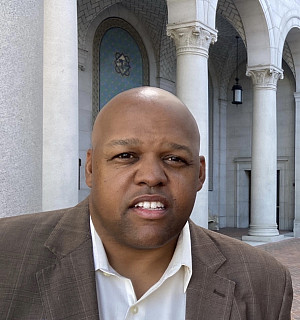
“It’s humbling, being a part of all of this, and being able to apply the skills that I learned at Southwestern,” he said. “Southwestern is a place that teaches you how to think and how to write. Southwestern gave me the individual attention that allowed me to really thrive.”
A native of Carson, California, a southern suburb of Los Angeles, Batch almost didn’t end up at Southwestern. When he was in high school, Columbia University emerged as his dream school. Batch had applied and was accepted into the prestigious Ivy League research university and wanted to begin his collegiate journey in New York City.
However, as Batch was preparing for a cross-country flight to New York City to attend a pre-enrollment event at Columbia, he added a stop in Austin so that he could visit Southwestern. Upon arriving in Georgetown, Batch immediately fell in love with the picturesque campus. During his all-day visit, he toured University facilities, met with current students, and even attended one of legendary Professor of Mathematics John Chapman’s calculus classes.
“There was a community that I saw, as a high school senior, that made me say, ‘I want to spend four years here.’ It was one of the best decisions that I could have made,” Batch said. “Southwestern was just a really good fit. Some of the folks that hosted me and that I met on that visit ended up being lifelong friends.”
“Southwestern is a place that teaches you how to think and how to write. Southwestern gave me the individual attention that allowed me to really thrive.” — Eric Batch ’97
It didn’t take long into his time at Southwestern for Batch to become an active member of the SU community, both inside and outside of the classroom. He excelled academically, earning his bachelor’s degree in political science. Throughout his time in the political science program, he developed a strong bond with Professor of Political Science Eric Selbin.
“Eric is one of the most outstanding young men it has been my good fortune to work with over my 33 years here,” Selbin said. “He was a strong student, but an even stronger human being, warm and funny and caring to his colleagues. That he has stayed in close touch to share not just his successes, but also his life and his amazing family, with me and my family has been such an incredible gift.”
The two Erics have remained in touch throughout the years since Batch’s graduation. Looking back, he credits Selbin for his guidance and mentorship.
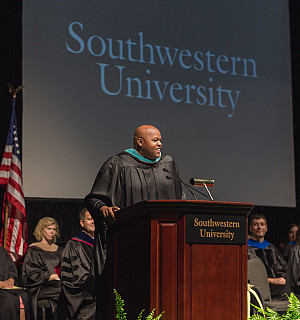
When he wasn’t studying, Batch stayed involved across campus. He participated in study abroad programs in London and Jamaica, he mentored local middle school students through Operation Achievement, and he volunteered as a tutor at the City of Georgetown’s Willie Hall Community Center.
He also served as the President of E.B.O.N.Y. during a critical time of transition for Southwestern University’s student culture. An acronym for Empowering Blacks & Others to Never Yield, E.B.O.N.Y was the precursor to the current Black Student Union. Batch estimates that there were never more than a dozen Black male students at Southwestern in any given semester during his four years on campus.
“I really gained an understanding of how to be in an environment where I was the only one who looked like me, and at the same time, never forget who I was,” he said. “I think that prepared me, because now in the business world, there are spaces where I show up and I am still the only one. It gave me the confidence to know that if I’m in a room, it’s because I belong there. The diversity at Southwestern allowed me to interact and be comfortable with all kinds of people from different backgrounds and different socioeconomic statuses.”
“Eric is one of the most outstanding young men it has been my good fortune to work with over my 33 years here. He was a strong student, but an even stronger human being, warm and funny and caring to his colleagues.” — Professor of Political Science Eric Selbin
Batch also found time to etch his name into the Pirate Athletics history books. As a student-athlete, he had the distinction of becoming the first Black letter-winner in the recorded history of the Southwestern men’s golf program.
“I was not Tiger Woods,” he joked. “But I got to play an intercollegiate sport and travel and represent Southwestern at different tournaments. That’s what Southwestern gave me. I could never have gone to UCLA or USC and played golf, or done probably half the things that I did at Southwestern.”
After completing his undergraduate studies, Batch did, in fact, go to USC. He returned home to Los Angeles to enroll at the University of Southern California, where he earned his master’s degree in public policy and met his future wife. He is also an Adjunct Professor in USC’s Sol Price School of Public Policy.
“Southwestern prepared me for grad school,” Batch said. “I knew I was ready.”
While at USC, he had the opportunity to work for the Office of Management and Budget in Washington, D.C., in addition to roles in the California Governor’s Office and on multiple political campaigns. After graduate school, Batch spent almost four years working at a major consulting firm, where he was part of a team that helped both public and private sector businesses run more efficiently. While he loved his work, he always had the feeling that he could do more to give back. That feeling led him to the American Heart Association.
“Being able to advocate, being able to work with volunteers, and being able to work with survivors has been very important to me,” Batch said. “All of us have been impacted by heart disease and stroke at some level. I have had family members impacted. I lost my grandfather to a smoking-related disease, so I wanted to give back.”
With February’s American Heart Month coming to an end, Batch stresses the importance of monitoring heart health and preventing heart disease, the leading cause of death in the U.S.
“I would encourage folks to know their numbers, especially blood pressure, cholesterol, and blood sugar,” he said. “Prevention is key, so those regular doctor visits and checkups are so important. And if you don’t know CPR, learn it.”
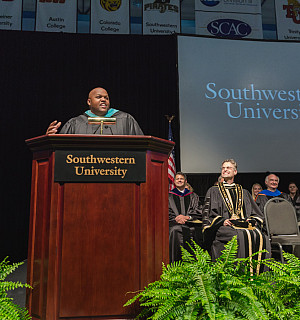
“Southwestern graduates from the 1990s, especially students of color, if you go back and look at where they are now, they’re doctors, college professors, industry executives, and entrepreneurs doing some amazing things,” Batch said. “That common denominator among all of us are those four years in Georgetown, Texas.”
Twenty years after being featured in Southwestern Magazine following the start of his career at the American Heart Association, Batch looked back and theorized what the 2005 Eric Batch would make of his career path.
“I think he would be proud,” he said. “And he would remind me that while I worked hard, I didn’t do it alone. God’s grace and favor cleared the path. He would also remind me that ‘Unto whom much is given, much is required,’ and to keep going and keep fighting, because there’s still so much work to be done.”
















